Babylab studying early years development opens at Bath Uni
- Published
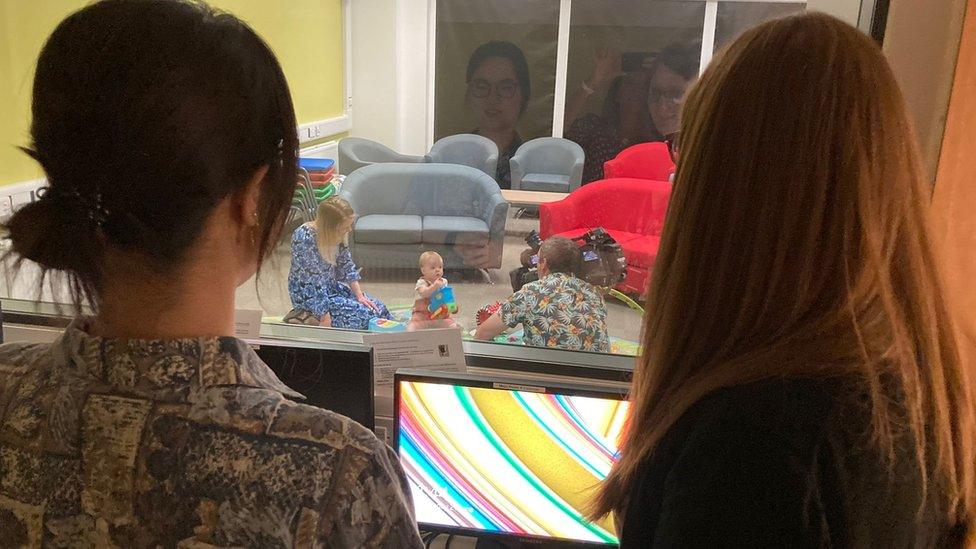
The Baby lab will look at how early years development is affected by the modern world
Scientists based at a new laboratory at the University of Bath are hoping to unlock how babies interact with the world around them.
The new Bath Babylab will study issues such as how screen time impacts attention and cognitive development.
It will also look at the factors that impact how long babies sleep for and how they learn language.
The lab, which opened on Saturday, is now looking for babies and young children to take part in its research.
Other areas of research will look at whether there are factors early in development which are associated with conditions like autism and attention deficit hyperactivity disorder (ADHD).
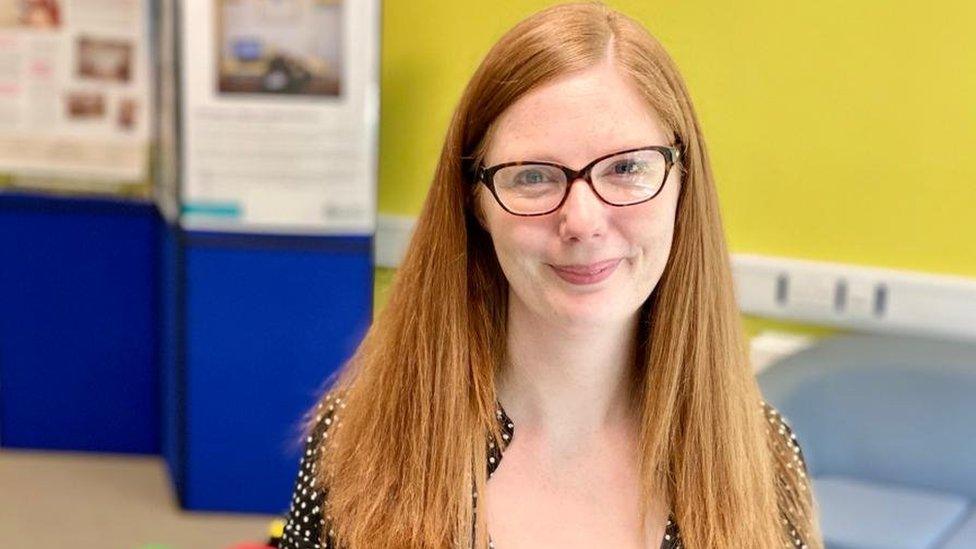
Dr Rachael Bedford is leading the research at the Babylab
Dr Rachael Bedford, a senior lecturer in psychology at the university, hopes the lab's research will be useful to parents.
She said: "Is there a difference between watching the screen in the evening as opposed to during the day on your child's sleep? That would be really useful to know."
The latest research from the team at the Bath Babylab suggested that high screen use may be linked to difficulties with executive functions.
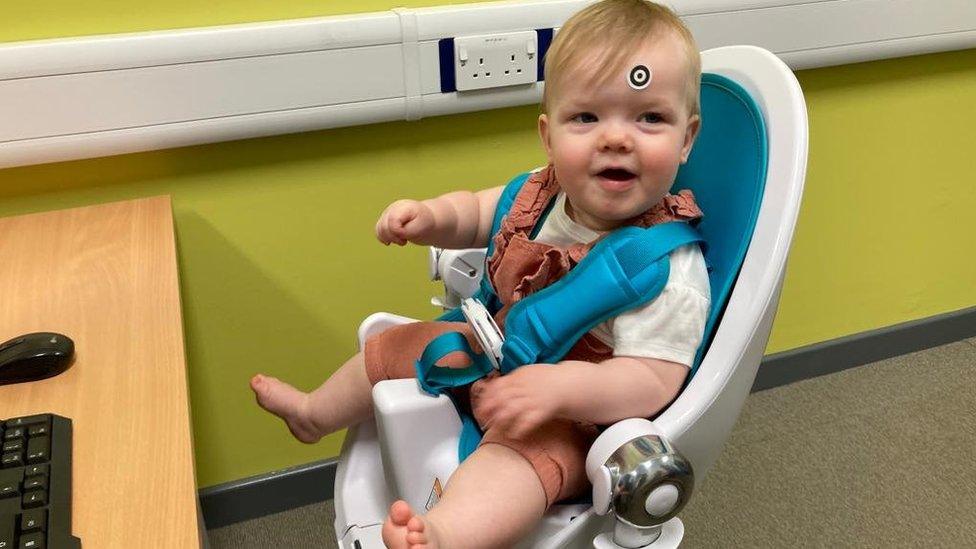
Eye tracking equipment monitors how quickly Darcie spots a red apple among blue apples
Skills associated with executive function include meeting goals, maintaining self-control, following instructions and staying focused.
It might mean high screen time makes it harder for children to control their actions.
Future findings might help policy makers and early years practitioner make decisions on how we can best integrate screens into our lives, Dr Bedford said.
Ten-month-old Darcie took part in a test involving watching pictures of fruit on a computer screen.
Tracking equipment linked to a sticker on her forehead monitored how quickly her eyes went to the red apple among a number of blue apples.
Dr Bedford said: "Children who use touch screens are a lot faster to find that red apple when it's among the blue apples.
"What we don't know yet is how that might look in the real world when we generalise beyond the computer, and whether that might make them more distractible when something in the environment is bright and shiny like that red apple.
"Does that grab their attention in a similar way?"
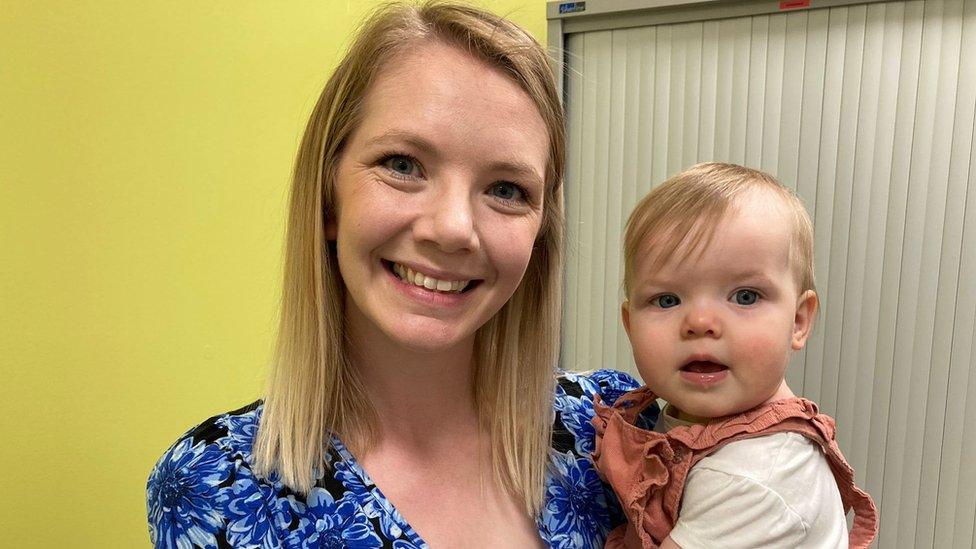
Darcie's mum Sophie is keen to learn more about what screen time means for children's development
Darcie's mother Sophie is keen to hear the research's conclusions.
"I feel they are trying to answer questions that all parents want to know the answer to - especially about screen time.
"In this day and age I think its really important to understand the impact of that."

Follow BBC West on Facebook, external, Twitter, external and Instagram, external. Send your story ideas to: bristol@bbc.co.uk
Related topics
- Published4 March 2023
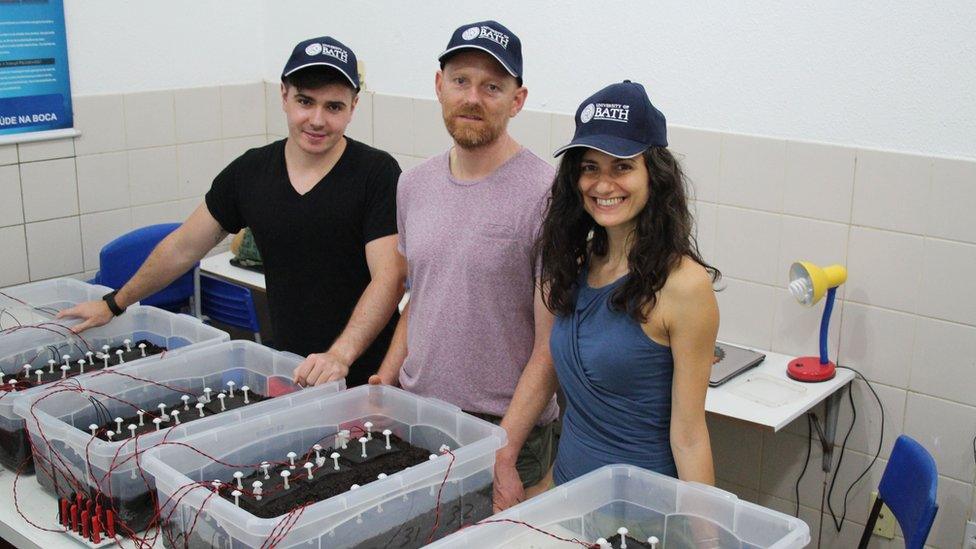
- Published24 December 2022

- Published30 November 2022
